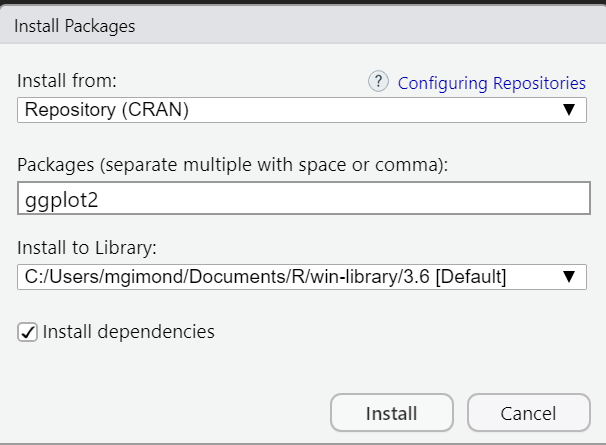

For Pro builds, this is required.Īlso, on some platforms you must manually select and install an OpenJDK-8 or 11. It is recommended that you build RStudio with GCC 4.8 or above. Additional Dependencies (Linux) gcc version Make sure to install R to C:\R, not C:\Program Files\R as is the default, since RStudio's build process needs to write additional symbol information into R's installation directory, and will not have permission to write to Program Files. If you're building an Ubuntu dev box, here's the tl dr for getting R installed on Trusty (Ubuntu 14):Īpt install apt-transport-https software-properties-commonĪpt-key adv -keyserver -recv-keys E298A3A825C0D65DFD57CBB651716619E084DAB9 Linux (Source)Ī version of R exists in the package repository for most major versions of Linux, but it's usually very outdated, so we recommend installing R binaries from CRAN instead. The following are links to the installers for current, older, and development versions of R for all supported platforms. RStudio itself is compatible with R version 3.0.1 or later, but version 3.1 or greater is recommended for development installations. On all platforms you need to install a version of R to target development against you should install R before running any dependency installation scripts in RStudio. Otherwise, configure manually per the following instructions.

On a clean Windows-10 64-bit system, you can bootstrap RStudio development by following the instructions here.

If you'd prefer an isolated development environment in a preconfigured virtual machine, you can use our Vagrant configuration script to create one (see RStudio Development for details). This page is intended to help you configure your own machine for RStudio development.


 0 kommentar(er)
0 kommentar(er)
